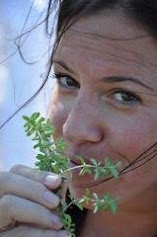14 July 2010
education opens minds and creates opportunity
Education has been weighing heavily on my mind since I got back from my volunteer project in Honduras. I live in Seattle, one of the best-educated big cities in America, where more than 50% of Seattle adults 25 and older hold bachelor's degrees or better. Despite massive budget cuts in our public school and higher education funding, our systems are still in far better shape than many communities I saw in the country’s capitol city, Tegucigalpa (and most of the place I’ll be volunteering over the next year).
In my adult years, I’ve hemmed and hawed that I didn’t exactly grow up in a household that instilled a “the world is your oyster” or “dream it, believe it, achieve it” mentality. At an early age, I was enrolled in private oil painting classes and all signs indicated that I would follow in my artist grandmother’s footsteps. I was never really encouraged to explore any other talents or interests (except for maybe dance lessons, which was strictly a hobby), so I grew up thinking that had to be my calling in life and the only thing I was good enough at to pursue professionally.
I traveled down a fine arts degree path, but returned to the restaurant industry, before stumbling into a career in publishing and journalism 12 years ago. I thank my lucky stars daily that I discovered a profession that allows me to explore and share stories from what I consider the great world wide classroom. I am always learning and faced with new and different challenges, and for that, I am grateful. I took a far from traditional path to get to my perfect place. At some point in my mid to late twenties, it dawned on me that life is what you make of it and I’ve never stopped for a second to think I couldn’t do something. I’m pretty sure this fierce confidence stems from the realization that I live in place filled with opportunity.
So what about the children I worked with in Honduras? The kids I worked with in Tegucigalpa were in Hogares Crea homes receiving a whole lot of religious guidance and “character building,” but not much in the way of real life skills. When I last checked, God doesn’t sign payroll checks when these kids turn 18 and must fend for themselves on the mean streets of Honduras. Obviously, the upside of living in a safe and structured environment with three square meals a day beats the alternative of the streets, addiction, gang violence and abuse. The system, albeit a mighty fine Band-Aid solution, does little to help these kids in the long run. Many of them have been through hell, yet don’t receive mental health services. Who are their role models? If you’ve never seen anyone succeed, how do you know that dreams and goals are possible? How bright is their future if they have no practical (read: income earning) skills to bring into the world? Why didn’t any of the teenage girls have a clue what AIDS/HIV (or SIDA en Espanol) was when they came across the word in my English/Spanish dictionary? A little education could go a long way for these teens and increase the possibility for opportunity and (fingers crossed) success. I want nothing more than for these girls to be able to stand on their own two feet when they turn 18 without even having to entertain the idea of returning to the streets, dealing drugs, selling their bodies, joining a gang, or (insert other horrific scenario here).
In contrast, I was able to work with first and second graders in San Ramón Amaya Amador, an extremely impoverished barrio on the outskirts of Tegucigalpa. The village had a basic, yet perfectly sufficient school program in place with a handful of teachers fully invested in the kids’ success. Each day, more than 50 kids attended after school programs at a building that Building a Future constructed – hands down the nicest structure in town. Some kids played games and puzzles and building blocks, while others engaged in age-appropriate learning exercises and worksheets; many were eager for one-on-one tutoring. San Ramón Amaya Amador is not an easy place to live with minimal amenities and rampant gang violence, but these teachers are truly heroes of the community earning both my utmost respect and that of the kiddies. And somehow, despite extreme poverty at every turn, the childrens' enthusiasm to learn combined with the teachers’ dedication seemed to make the situation seem far less hopeless.
Education opens peoples’ minds and enables them to hope and dream and believe that somehow, somewhere in this world anything is possible. Whether it’s a situation of hardship, like in Honduras, or growing up in middle class America, just having that simple belief in your back pocket is one of the most powerful tools we can have. Maybe I’m a bit optimistic, but I believe that in every obstacle, moment of doubt, heartbreak and pain there is an opportunity to learn. And learning can only help create more opportunity.
Subscribe to:
Post Comments (Atom)







No comments:
Post a Comment